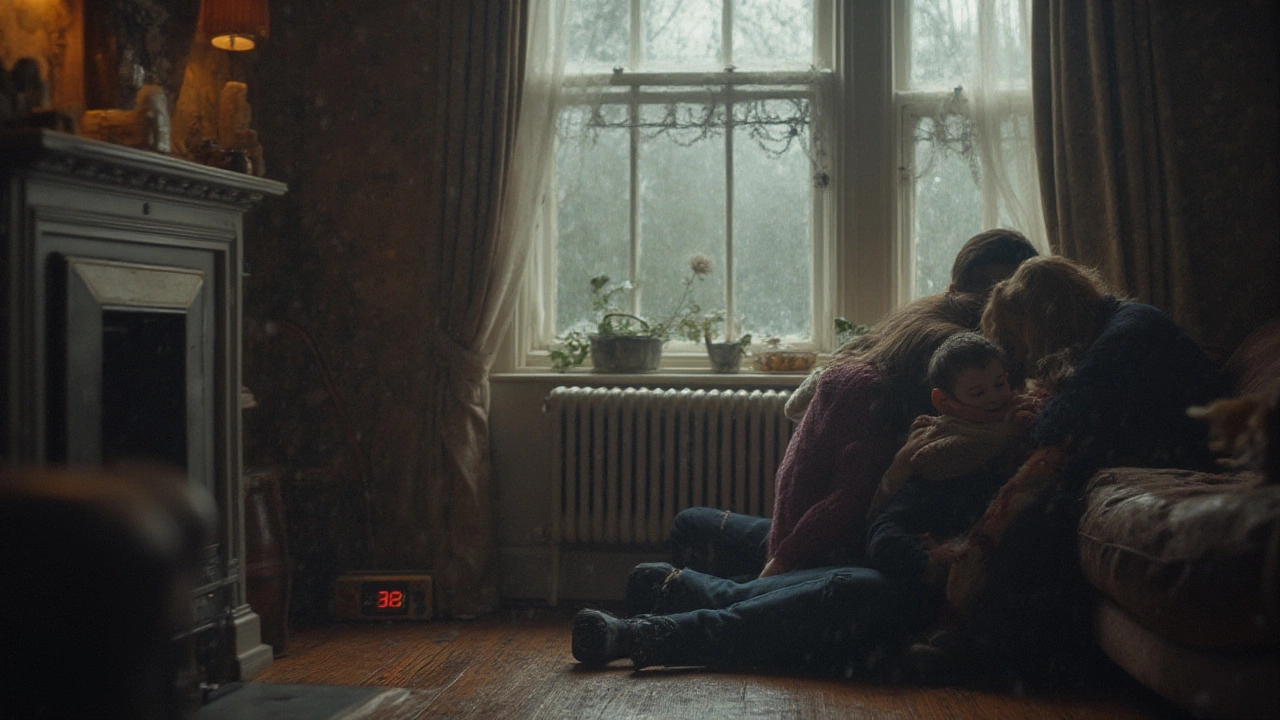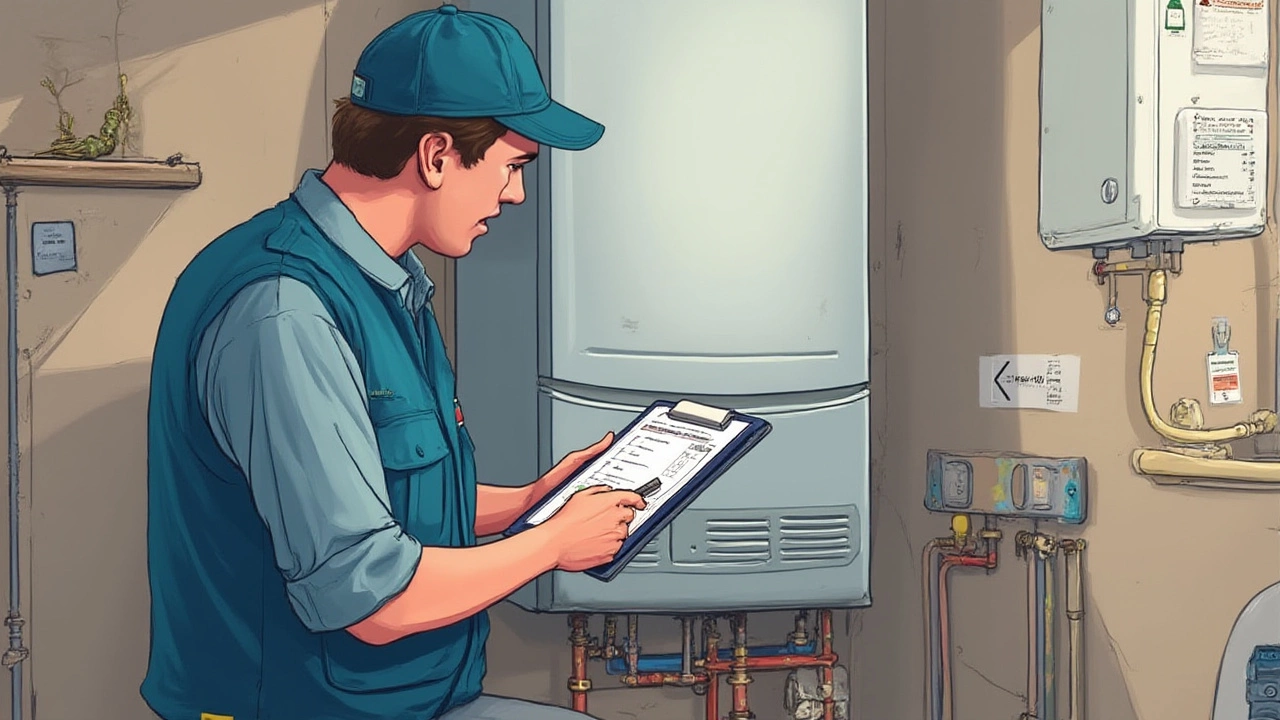Ever heard a boiler start clanging like it’s summoning ghosts? Mine once sounded like a pot of angry soup—and it turned out I’d ignored something small that became a bigger headache. The truth is, boilers barely get a thought during summer, then suddenly, as temps drop, everyone panics when they won’t heat up. Nobody wants to freeze or get hit with a burst pipe. The real trick: spot the issues before your boiler breaks down entirely.
What’s Normal—and What Isn’t With Your Boiler?
Let’s get one thing clear: a boiler shouldn’t smell, bang, gurgle, drip, or make your radiators cold for no reason. It’s easy to miss the warning signs when life gets busy. In the UK, Gas Safe reported that 1 in 5 home boilers examined after a breakdown had clear evidence of missed maintenance. Trust me, I get it. Between walking Rocco and scooping Whiskers’ litter, I don’t always run straight to the boiler if something seems off. That instinct, though, is exactly what gets people in trouble.
Your senses are your first line of defense. Weird sulfur or eggy smells? That could be leaking gas—the stuff that makes headlines, and not in a good way. If you ever catch that, don’t second guess, just get out and call for help. Noise? All boilers make a gentle hum, but knocking, clanging, whistling, or a sound like a kettle boiling dry means trouble. This can point to mineral buildup (limescale, especially in hard water areas), air trapped in pipes, or even a pump on its last legs.
Boiler pressure is vital. There’s usually a pressure gauge with a sweet spot—often between 1 and 2 bars. If it’s low, maybe there’s a leak, or you’ll just get lukewarm heat. Too high, and you could risk a blowout. Pressure creeping up for no reason suggests bigger problems than just needing to bleed a radiator.
About those radiators: if parts of your home are chilly or there’s cold spots on the radiators, there’s a good chance your boiler’s circulation isn’t working right. Maybe you’ve got trapped air, sludge, or even a failing pump. Not something you want to ignore in winter. Look at the table below for a quick cheat sheet on what’s normal and when you need to act fast:
| Symptom | What It Means | Act Now? |
|---|---|---|
| Eggy smell | Possible gas leak | Evacuate and call for emergency help |
| Clanging or banging noises | Limescale, air, or failing parts | Call for inspection quickly |
| Leaks or puddles | Cracked seals or pressure problems | Shut off and get pro help |
| Cold radiators | Sludge/air or pump trouble | Bleed radiators; call if it persists |
| High/low pressure | Leaks, failed valve, or system problem | Check and call if out of normal range |
The worst case? You see warning lights or error codes on the boiler’s display. Don’t just reset and hope for the best. Dig up that manual (or Google the code with your model name) and look up what’s going on. Codes often show things like ignition failure, low water pressure, or even carbon monoxide risk. Funny thing: in 2021, British Gas said 42% of breakdowns they attended in winter were caused by something simple—clogged filters or low pressure.
And don’t get me started on leaks. Water pooling by your boiler isn’t just annoying, it’s a recipe for further trouble—electrical issues, rust, you name it. I once ignored a tiny drip and ended up replacing a pump for four times the price. If you hear or see anything off, don’t wait hoping it’ll fix itself. Boilers do not heal like scraped knees.
Sometimes, it’s about trust—if your heating just feels off, even if you can’t explain why, listen to that gut feeling. My neighbor, Anne, once called me to look when her pipes started rattling after midnight. We caught a minor issue before it flooded her kitchen. Be nosy with your boiler. There’s zero shame in being safe.

Common Boiler Problems and What Causes Them
Boilers have more in common with cars than most folks realize—lots of little parts, and if one goes, the whole thing shudders. Most problems come down to age, lack of maintenance, or outside factors like pressure changes or frozen pipes.
Let’s talk about age first. Most modern boilers last around 10-15 years with decent care. If yours is pushing twenty and it sounds like a steam train, it’s probably time for a replacement. Even with my stubborn streak, there came a point when patching up my old combi (combi just means it does both heating and hot water) wasn’t worth the hassle. Older boilers are also less efficient, so you might actually save money upgrading—especially now that energy rates keep creeping up.
Here are a few of the most common problems, why they happen, and some signs to watch for:
- Low pressure – Could be from a leak, recently bled radiators, or a faulty pressure relief valve. The fix might be as simple as topping up water, but if it drops again, you’ve got a hidden issue.
- Limescale and sludge – Hard water leaves scale inside the heat exchanger, choking the system and causing noises and reduced efficiency. Sludge (rust and debris) does the same. Regular power flushing helps, but too much build-up and your boiler works double time—think Whiskers running up the curtains over and over, eventually he wears out.
- Pilot light goes out – On older boilers, the pilot light (that little blue flame) can blow out due to thermocouple failure or blocked jets. Modern boilers tend to have electronic ignition, but if it fails you’ll see an error code.
- No heat or hot water – Usually caused by broken motorized valves, airlocks, broken thermostat, or low water levels. Sometimes, it’s something silly—a dead battery in the thermostat. (Don’t ask how many times I’ve been caught out by that with Rocco staring at me because he’s cold!)
- Frozen condensate pipe – This one’s a winter classic. During cold snaps, the condensate pipe outside your house can freeze solid, causing your boiler to shut down as a safety thing. A kettle of hot water on the pipe usually sorts it—just don’t burn yourself.
Neglect is the slow killer. Skipping annual servicing might seem like saving money, but you’re really gambling. According to the Energy Saving Trust, regular annual servicing not only spots early problems but can cut future repair bills by as much as 50%. Plus, a yearly check keeps your warranty valid, which is a lifesaver if anything major goes wrong.
“Servicing your boiler isn’t just about keeping warm, it’s about safety. Faulty boilers can leak carbon monoxide, which is odorless and deadly. Annual checks give peace of mind.” – Gas Safe Register spokesperson
There’s also a safety angle people don’t talk about enough: carbon monoxide. It’s silent and invisible but the effects are deadly—nausea, confusion, and sometimes worse. If your boiler’s flame turns yellow (instead of crisp blue) or you feel odd at home, open windows, get out, and get the system checked. Installing a CO alarm near the boiler is cheap insurance.
Finally, some issues come from outside the boiler itself. Bad weather can block vents or air inlets. Power cuts can mess with electronics. I’ve seen sensors fail just because a spider built a web across a vent. You don’t need to become paranoid, but do a visual check at the start of each season. Like with pets—keep an eye out for what’s out of place or smells weird.

When Is It Time to Call a Pro?
Here’s the line you shouldn’t cross: anything involving gas, carbon monoxide, or electrical faults should never be a DIY fix. Not worth the risk, not even for someone handy. Even I draw the line at opening up sealed boilers. Working on boilers without the right certification is illegal in some places (if you’re in the UK, they call it Gas Safe, in the US it’s licensed HVAC techs).
So, when should you call for backup? Here’s a hit list:
- If there’s any sign of gas or carbon monoxide (smells, headaches, dizziness, yellow flame, CO alarm sounding)
- Persistent leaks or puddles (especially if the boiler keeps losing pressure)
- Boiler repeatedly shuts down and won’t reset
- Strange noises that don’t go away after bleeding radiators or topping up pressure
- Visible error codes or warning lights
- No heat or hot water after basic checks (thermostat, batteries, fuse box, valves are all OK)
- Poor or uneven heating throughout the house
Don’t feel silly for asking about something ‘minor.’ Engineers would rather check early than deal with a disaster. Plus, small fixes now mean avoiding major bills later—or worse, needing a whole new boiler midwinter.
It’s also smart to schedule a yearly inspection, ideally in late summer or early autumn. That way, you’re set for when the cold comes. My tip: set a reminder in your phone (mine literally says, “Orin, for the love of your toes, book the boiler!”).
You might be curious about maintenance routines you can do yourself. Here’s a quick rundown:
- Check the pressure gauge at least monthly.
- Bleed radiators if you have cold spots.
- Listen for odd sounds, especially after long periods off.
- Look for signs of moisture, rust, or leaks around the boiler and radiators.
- Test the CO alarm twice a year—press the button, make sure it works!
- Clear away household clutter from your boiler, allowing ventilation.
Don’t forget—most warranties and insurance policies insist on professional servicing and won’t cover damage from DIY tinkering. If you ever need to claim, you’ll want those records handy. I learned the hard way after thinking ‘just a small leak’ on my old system wasn’t worth calling someone out for.
In the end, it’s like fixing a squeaky door: ignore it and it’ll bug you even more. Only the stakes are higher. A boiler isn’t just about comfort, it’s about safety and keeping everything ticking in your house. Look, nobody wants the drama of waking up in December to a freezing house. The habit of checking now—while it all seems fine—could be the one that saves you money and hassle (or lets you spend it on better things… like new pet toys for Rocco and Whiskers).
So, don’t ignore when things seem off. Boilers might not demand attention, but when they call out for help—those noises, those smells—answer them fast.

